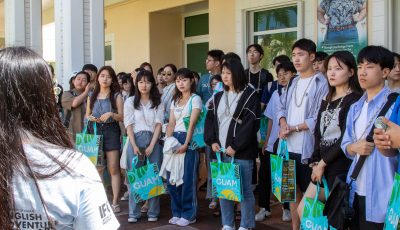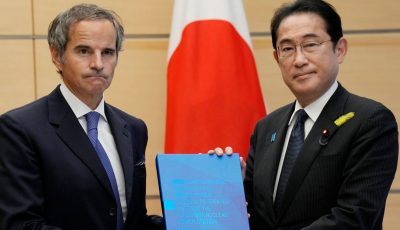Be a smart ethical consumer
“Ethical consumption” is having a silent boom in Japan. Consumption such as eating, using or shopping is an action that’s part of our usual daily activities. The phrase “ethical consumption” sounds very formal but it simply describes a way of consumption by considering how your lifestyle affects other people, communities, and the environment.
In September 2015, the United Nations General Assembly adopted 17 Sustainable Development Goals to make the world a better place. Within that, goal number 12—“Responsible Consumption and Production”—is the origin of ethical consumption. In Japan the Consumer Affairs Agency is taking the initiative to implement ethical consumption but it is vital to have the community involved for it to be successful. In Japan, certain prefectures or cities currently have organizations with specific goals to achieve further implementation of ethical consumption and key within these organizations is the Japan Ethical Association, which marked its fifth anniversary in last November. Due to the COVID-19 pandemic, the association started an online lecture, “Ethical Concierge Course,” to develop and teach new concierges to further spread awareness of “Ethical Consumption.” The representative director of the Japan Ethical Association, Ms. Sueyoshi Rikam, concedes that the word “ethical” is not well known among people and ethical consumption received little to no attention when the association was founded in 2015, the same year when the SDGs were adopted. Even under these circumstances, she did not lose hope because she had an important task to encourage people to think, take action, and ethically make changes, in order to create a world where like-minded people could live. Fortunately in Japan, within the last five years the word “ethical” is being more noticed and, starting next fiscal year, knowledge about “ethical consumption” will be included in textbooks for middle school and high school.
Let’s look into what can be done with “ethical consumption.” For example:
1. Consideration for people: Purchase products from businesses that are supporting the disabled with job opportunities.
2. Consideration for society: Purchase products in which a portion of the sales will be donated to charity and purchase fair trade products where materials and products are being traded at appropriate prices in developing countries.
3. Consideration for region: Support local production for local consumption, which leads to regional vitalization and to reduce the energy usage from transportation; or purchase products from areas affected by a disaster, which could lead to faster economic recovery.
4. Consideration for the environment: Purchase eco-labelled products that use recycled or bio-friendly materials.
5. Consideration for biodiversity: Purchase forest resourced products that are appropriately monitored; purchase seafood products following the protection of the environment and marine resources; and purchase products that uses palm oil (detergents) that are environmentally friendly.
Ethical consumption is not only done by those who are wealthy. Each individual has a role by being considerate toward one another, thinking about the background of how the products are delivered and disposed afterwards. Keeping this in mind and using appropriate services may result in solving the issue we are facing and passing on this teaching to the next generation is our vital task. The following are essential points to bear in mind:
1. Don’t make a purchase that results in hoarding. 2. Only purchase the appropriate amount of essential products that you need. 3. Don’t just think about now, think about what kind of effect it could have in the future. 4. Pay attention to any social issues going on in foreign countries. 5. Take action by being considerate to other people and not just only yourself. 6. Respect universal design and biodiversity.
If we realize that everything on this earth is connected to each other, we will come to an understanding that each individual’s action has a greater meaning. One of the tasks is to think about how we could teach and face these issues by means of educating children and to think about what kind of Earth our next generation will inherit. In these times where the environment of the Earth is changing, we may have to adjust to change ourselves. To change the future of the world including the CNMI, it is up to each individual’s consumption. The future of the world may change if we live day to day being conscious of this keyword.
Ono Kazuhiko (Special to the Saipan Tribune)
Ono Kazuhiko is the Japanese consul and head of the Consular Office of Japan on Saipan.



























